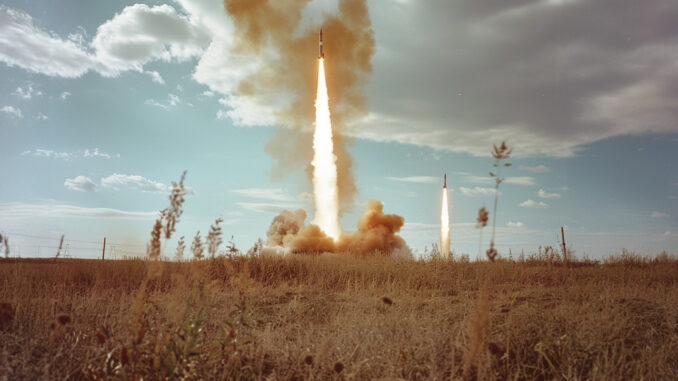
The Biden administration reassigns Patriot and NASAMS missiles to Ukraine. Global impact on allied air defence.
The Biden administration has decided to redirect deliveries of Patriot and NASAMS missiles destined for several allied countries to Ukraine, in the context of Russian attacks on Ukrainian civilian infrastructure. This decision, while beneficial for Ukraine, has raised concerns among other international customers about the reliability of US military commitments and the availability of stocks. Indeed, the consequences extend beyond air defence, also impacting diplomatic relations and global defence strategy in the face of growing threats, particularly in the Asia-Pacific region.
Reallocation of missiles: an emergency measure for Ukraine
The Biden administration has decided to prioritise deliveries of Patriot and NASAMS missiles to Ukraine and Taiwan, temporarily delaying orders from other allied countries. This emergency measure is designed to strengthen Ukraine’s air defence capabilities in the face of ongoing Russian attacks on civilian infrastructure. The Patriot and NASAMS systems play a crucial role in protecting against ballistic missiles and medium-range air threats.
Patriot and NASAMS: essential defence systems
The Patriot and NASAMS missile systems are key elements of modern air defence. Patriot missiles, in particular, are designed to intercept and destroy tactical ballistic missiles, cruise missiles and advanced aircraft. NASAMS, for its part, mainly uses the AIM-120 AMRAAM, a medium-range air-to-air missile widely used by Western air forces.
The Patriot PAC-3, the most advanced version of the system, is capable of destroying targets at an altitude of 20km and a range of 70km. In parallel, the NASAMS, with its AIM-120s, can engage targets at a maximum range of 50 km. These systems are vital for air defence in urban environments and for protecting critical infrastructure from air attack.

Consequences for international customers
The reallocation of missiles has a direct impact on the United States’ international customers, who now face delays in the delivery of their air defence systems. This raises concerns about the reliability of US military commitments, especially for countries facing immediate threats.
Impacts on Asia-Pacific defence
Although Taiwan is exempt from these delays, other Asia-Pacific allies such as South Korea, Japan and the Philippines now have to wait. These countries face a growing threat from China, which has stepped up its military activities in the region. Japan, for example, has recently invested in strengthening its air defence, notably by ordering locally produced Patriot GEM-T systems under US licence.
This region is of crucial strategic importance to the United States, and any delay in the delivery of defence systems could weaken deterrent capabilities in the face of Chinese military expansion. A delay of 16 months could mean a window of vulnerability, during which these countries would be less able to defend themselves against potential attacks.
Production and stockpiles: increased pressure
The reallocation of missiles highlights the limits of US stockpiles and production capacity for Patriot and NASAMS missiles. The US has already drawn on its reserves to support Ukraine, raising questions about the long-term sustainability of these measures.
Production capacity and allied support
Currently, around 500 AIM-120 missiles are being produced for potential delivery to Ukraine over the next 16 months. At the same time, the United States will purchase around 360 AMRAAMs over the same period. Production of Patriot missiles in Germany, although significant, concerns an earlier version of the missile, less advanced than the PAC-3.
Japan has also announced the delivery of Patriot missiles manufactured under US licence, which could ease some of the pressure on US stocks. However, current production capacity is insufficient to meet the simultaneous needs of Ukraine and other allies.
Diplomatic and strategic repercussions
The decision to reallocate missiles could have significant diplomatic repercussions. US allies could perceive this measure as a sign of uncertainty about the reliability of US deliveries in times of crisis.
Perception of US reliability
Delays in the delivery of defence systems can affect allies’ confidence in US commitments. For example, European countries, although generally supportive of Ukraine, could see this reassignment as an indication that their defence needs could be relegated to second place in the event of a protracted conflict.
For the countries of the Asia-Pacific, this decision may be seen as a threat to their security in the face of an increasingly assertive China. Dependence on the United States for critical defence systems could prompt these nations to diversify their sources of weaponry or invest more in domestic production capacity.
A delicate balance
The reassignment of Patriot and NASAMS missiles to Ukraine is an emergency measure justified by the current circumstances, but it highlights the challenges faced by the United States in maintaining a balance between supporting Ukraine and meeting the needs of its other allies. This decision will have long-term implications for the dynamics of military alliances and the perceived reliability of the US as an arms supplier.
It is crucial for the United States to manage these expectations and strengthen communication with its allies to minimise any negative impact. Greater transparency on production capabilities and future delivery plans could help maintain confidence and ensure continued defence cooperation.
War Wings Daily is an independant magazine.